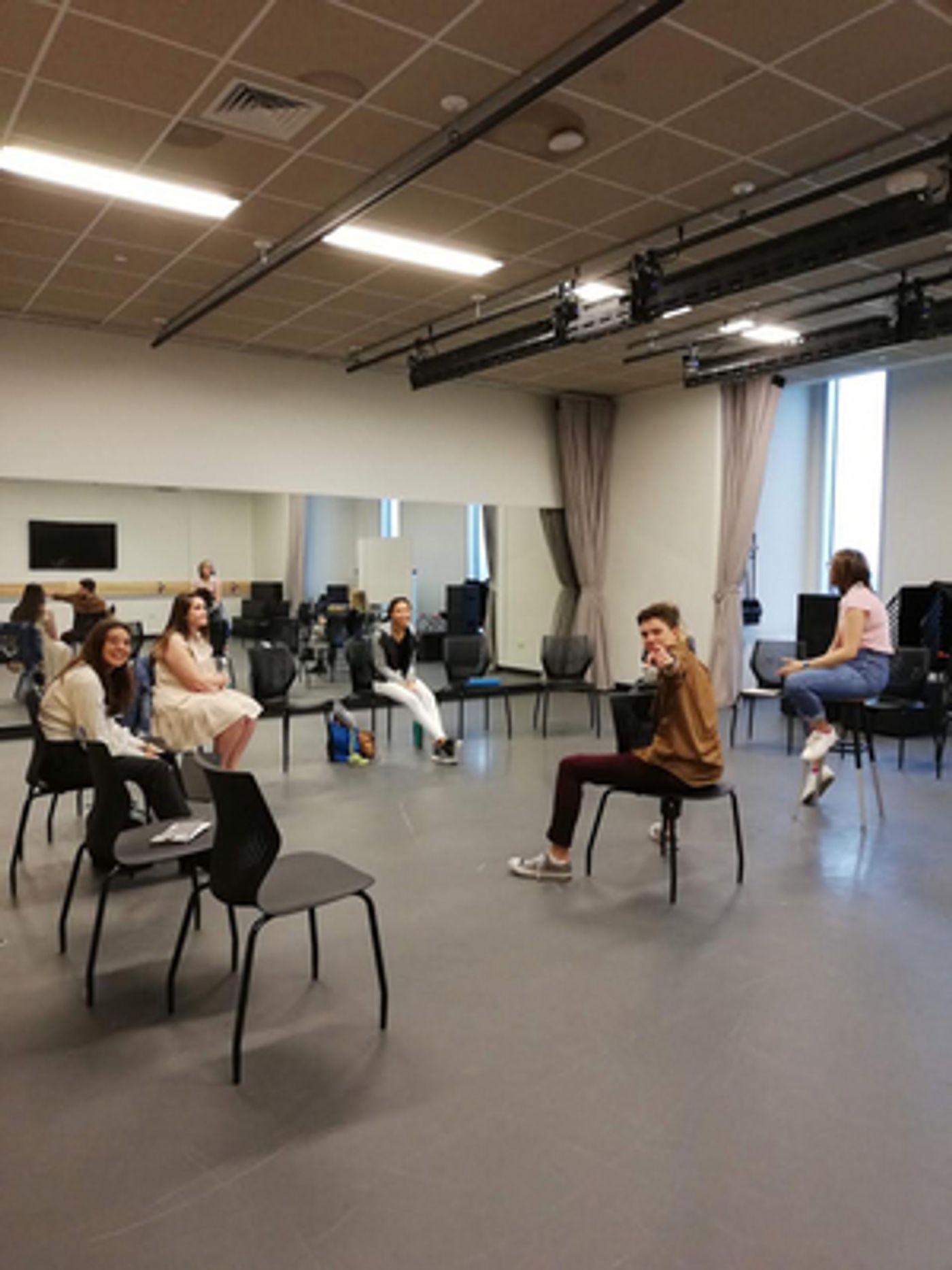BWW Blog: Freshman Key to Success or The Triple Threat Method

There's so much tension involved in applying to college that no one tells you what to do when you actually get there. There's auditions to go to, resumes to make, headshots to compile, reps to pick out, but now that's all over and you've made it into the program of your choice.
Huzzah!
Now what?
You've got your bag packed, you're lanyard at the ready and an infinite amount of choices laid before you, with no guide or rules to tell you what to pick or which path to walk on.
The world is yours for the taking; and that's a very frightening thing to consider.
What no one tells you about being a successful theatre major is that the trick is to take a deep breath, pluck up your courage and allow yourself to experiment and try out as many new things as you can. You might come in as an actor and find out that you were born to be a Stage Manager, or maybe you came in as a lighting designer and found out that you really enjoy makeup design. You won't know until you try something new.
When I first started college, I came in with the idea that I wanted to be an actress. However, the more time I spent in Loyola University New Orleans's BA program the more paths opened up to me. Yes, I love acting but I also love makeup design, directing, and script writing, and this is what I personally find to be the beauty of a BA program. Our professors are always encouraging us to be "triple-threat" theatre professionals. They don't mean "triple-threat" in the traditional sense of actor, singer, and dancer, but in the sense that you should be able to pick out three theatre related skill that you are very good at and could get you hired- for one of many friends this means the combination of actor, sound designer, and scenic designer, and for this means stage manager, production manager, and actress. Because of this, we're encouraged to take as many classes in different fields as is humanly possible for us.
At Loyola University New Orleans's Department of Theatre Arts and Dance, I've had to take a multitude of different classes- some which happen to be way off of my comfort zone. This has turned out to be a really good thing. As a freshman, I had to take both Stage Craft I and II, which involved a lot of carpenter work in the scene shop. I didn't like it, but now I can say that I won't cut a finger off while using a power tool. In that same vein, I also took a Theatre Management class as an elective thinking I would like it. It was a miserable class to get through, but now I understand more of what goes into running a non-profit theatre.
Similarly, I ended up taking many backstage positions during my first two years at Loyola University New Orleans. I was part of the costume crew for our production of Richard III. I was also the projection editor for our highly-techy production of Informed Consent. As a baby high schooler going into college, I would've never seen myself as a techy person, and, yet, I found myself enjoying these new experiences and I can appreciate the amount of work the backstage folk do so much more.
The more experiences you allow yourself to have, the better of a theatre professional you will become. Even if you don't see yourself becoming an actor in the future, if you decide to direct, understanding how your actors approach the text will help you close that gap between you, and vice-versa. The more skills you gain, the more hirable you'll become.
The key to college is that it's a period of growth. It's the time for you to experiment and learn and snatch up all the opportunities that come your way. In other words, take that design course, volunteer for that assistant stage management position- you never know what you'll come to love and how it'll help you in the long run.
Videos


